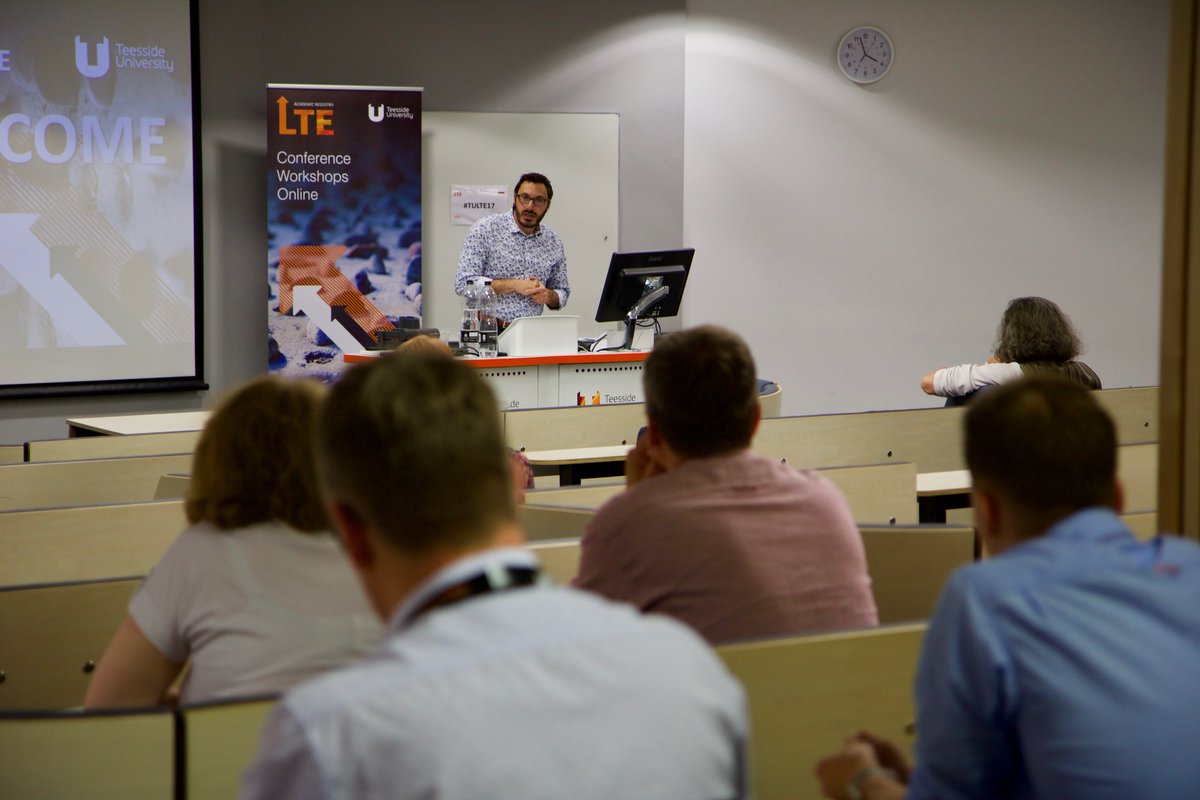A couple of weeks ago, the University ran it’s annual conference on Learning & Teaching Enhancement. It’s a great event, where staff and students can showcase some of the great work and innovations that they’ve been implementing during the year. This year, for the first time, the organisers had arranged for a few ‘Provocation’ sessions on a range of L&T subjects. Including one on the linkages between research and teaching. Now, I’m not one to shy away from being provocative and like to shake the tree now and then to see what falls out, so I leapt at the chance. Below are a some sections from my script, with a few thoughts chucked in for good measure. The Provocation before me (an excellent talk by Paul Taylor on the use of data analytics) posed a series of interesting questions, but what I wanted to do with my talk was to take a fairly sensible argument to an extreme conclusion in order to stimulate debate and discussion.
So, my questions are simple then:
-
What is the point of a university? And
-
What is the point of you?
I really wanted to kick off with something bold and attention-grabbing…
So, the former. What is the purpose of a university? Stating that we’re a teaching institution is simply not enough, because how can we differentiate ourselves from a school or a college? We can differentiate ourselves by being knowledge generators, not just purveyors of knowledge – knowledge-mongers, if you will… And this is crucial. The world is facing a series of significant threats to our future. Stephen Hawking gives us about 100 years before we’re scuppered. Thus we have many state and cross-state institutions offering money to scientists in Global Grand Challenge themes. Education undoubtedly improves peoples’ opportunities and aspirations, but it is research that will solve these problems. It is research that will clean the oceans, get us into space, provide the modified food we will need, and solve the energy crisis. In my own field, it’s research that is resolving cases of breaches of international criminal law.
Next I wanted to emphasis the importance of research. My aim was to be provocative by arguing that research was more important than any other aspect of university work. This would set the scene for my later provocative suggestions. Also, I am inordinately pleased with myself for the phrase ‘knowledge-mongers’…
We know, through anecdotal experiences and evaluation studies that students respond to a research-informed teaching agenda, in terms of engagement and experience. The debate as to what we mean by research is another provocation in itself, so I’ll stick with the definition I’ve used before and state that it is knowledge generation. Research with a big R. Therefore students should be working at the edge, the boundary of knowledge – not slap-bang in the middle of what is already know. The link between research and teaching then is not bridged through a curriculum that emphasises the development of research skills over new and novel knowledge.
I didn’t have time to present a nuanced definition of what research is, or c/should be, so just plumped for one I’d used before in other talks on RiT. Again, I’m still trying to highlight the importance of research over ‘traditional’ university teaching, but at least I followed this up with examples of how we could embed this into our curriculum. For example, through group week activities, using PhD students, our Graduate Tutor scheme and so on. By giving examples, I am trying to make the point that this isn’t some fantasy position, but rather something tangible.
A recent trip to an American university merely underlined this fact – that a high quality university experience with high entry tariff points, high student satisfaction and high employability is possible through a global grand challenges problem-based approach which minimises time in the lecture room.
This was Olin College of Engineering, just outside of Boston.
So, the logical conclusion of this is simple: that Professors as de facto world-leaders in research should lead on curriculum development. Their perspective and research lines should become embedded through our UG and PG degree provision. By the same token, since all courses should be research-led, there is no need for teaching-only contracts. If you are not producing research of tangible benefit then you should not be working at a university. By the same token, we wouldn’t need scheme like our Students as Researchers projects, because all students would be researchers already. And naturally all promotion would be viewed through the lens of research, since this is the most important aspect of university education. Even the departmental level TEF assessment may use REF units of assessment as categories – teaching assessment dictated by research assessment. Research will always trump teaching, and we should accept that and move towards this end-point.
I wanted to end with a series of bang-bang-bang statements that were designed to shock. The gasps from the audience suggested that I had hit the mark… I don’t believe these statements, but they are the conclusion of assuming that research is the most important thing that we do. I’ve certainly had conversations with other academics who argue for a situation very close to this little lot.
Following my provocation, we got into a good debate about the balance between research and teaching, and the whether we want to expose our students to research (or rather, Research, big ‘R’) or research skills development. They do different things, but for me, the former cannot be replaced by the latter. Research skills are very important, especially in the workplace. But when I’m feeling naughty (or provocative, I guess…) I’d argue that research skills are no different from the skills we use to dig out good deals on holidays through the web. Research (big ‘R’) is about addressing and answering those big societal questions and challenges – and there is nothing else, in my mind, that can better equip our students to be true global citizens.

